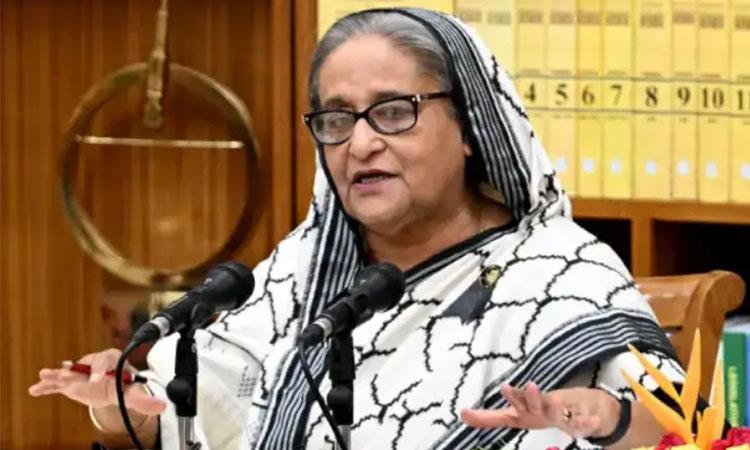At 76 years old, Bangladesh Prime Minister Sheikh Hasina is a remarkable political figure who has played a pivotal role in guiding the transformation of a nation with a population of 170 million. Over the past decade, she has overseen the shift of Bangladesh from being primarily a rustic jute producer to becoming the Asia-Pacific's fastest-growing economy, according to a cover story in Time magazine.
In her role as Prime Minister since 2009, following a prior term from 1996 to 2001, Hasina has received acclaim for effectively addressing the challenges posed by resurgent Islamist groups and a once meddlesome military, as noted by Time.
With more electoral victories already under her belt than the late Prime Minister Margaret Thatcher or Indira Gandhi, Sheikh Hasina remains determined to extend her record in the upcoming elections scheduled for January.
“I am confident that my people are with me,” she says in an interview with Time in September. “They’re my main strength.”
Bangladesh has faced criticism for taking an authoritarian turn under the leadership of Sheikh Hasina's Awami League party. The past two elections in the country have been widely condemned by the United States, the European Union, and others due to significant irregularities, such as the presence of stuffed ballot boxes and a substantial number of phantom voters. Despite these concerns, Sheikh Hasina secured 84 percent and 82 percent of the vote in the last two elections, respectively.
Furthermore, Khaleda Zia, a two-time former Prime Minister and leader of the Bangladesh Nationalist Party (BNP), is currently under house arrest on questionable corruption charges and is reported to be in poor health.
In addition to these issues, BNP workers have faced an extraordinary number of legal cases, with over 4 million cases filed against them. Independent journalists and civil society groups have also alleged harassment.
Critics argue that the upcoming January election is effectively a coronation, raising concerns about Sheikh Hasina's consolidation of power and the state of democracy in Bangladesh.
“The ruling party is controlling all the state machinery, whether it’s the law enforcement agencies or the judiciary,” says BNP Secretary-General Mirza Fakhrul Islam Alamgir, who has been charged in 93 cases—including vandalism and murder—and imprisoned nine times.
“Whenever we raise our voices, they oppress us.”
Sheikh Hasina's economic accomplishments in Bangladesh have indeed been remarkable. The country has made significant progress, transforming from a nation struggling to provide food for its population to becoming a food exporter. During her tenure, Bangladesh's GDP has seen a substantial increase, rising from $71 billion in 2006 to $460 billion in 2022. This growth has positioned Bangladesh as South Asia's second-largest economy, following India.
In addition to economic progress, social indicators have shown improvement as well. Notably, 98 percent of girls in Bangladesh now receive primary education, reflecting advancements in the education sector.
Bangladesh has also made strides in transitioning to high-tech manufacturing, attracting international firms such as Samsung, which have chosen to diversify their supply chains by establishing a presence in the country. These developments underscore the country's growing role in global trade and its efforts to become a hub for high-tech industries.
“We need to improve, of course, when it comes to democracy, human rights, free speech,” says Professor Mohammad Ali Arafat, an Awami League lawmaker from central Dhaka.
“But we have come a long way.”
Hasina knows that a bitter and bruised opposition means failure is not an option.
“It is not that easy to overthrow me through a democratic system,” she says. “The only option is just to eliminate me. And I am ready to die for my people."
(With Agency Inputs)
ALSO READ | BNP-Jamaat only believe in terrorism, militancy: Sheikh Hasina
ALSO READ | Modi, Sheikh Hasina to virtually inaugurate 3 India-assisted projects on Wed


















